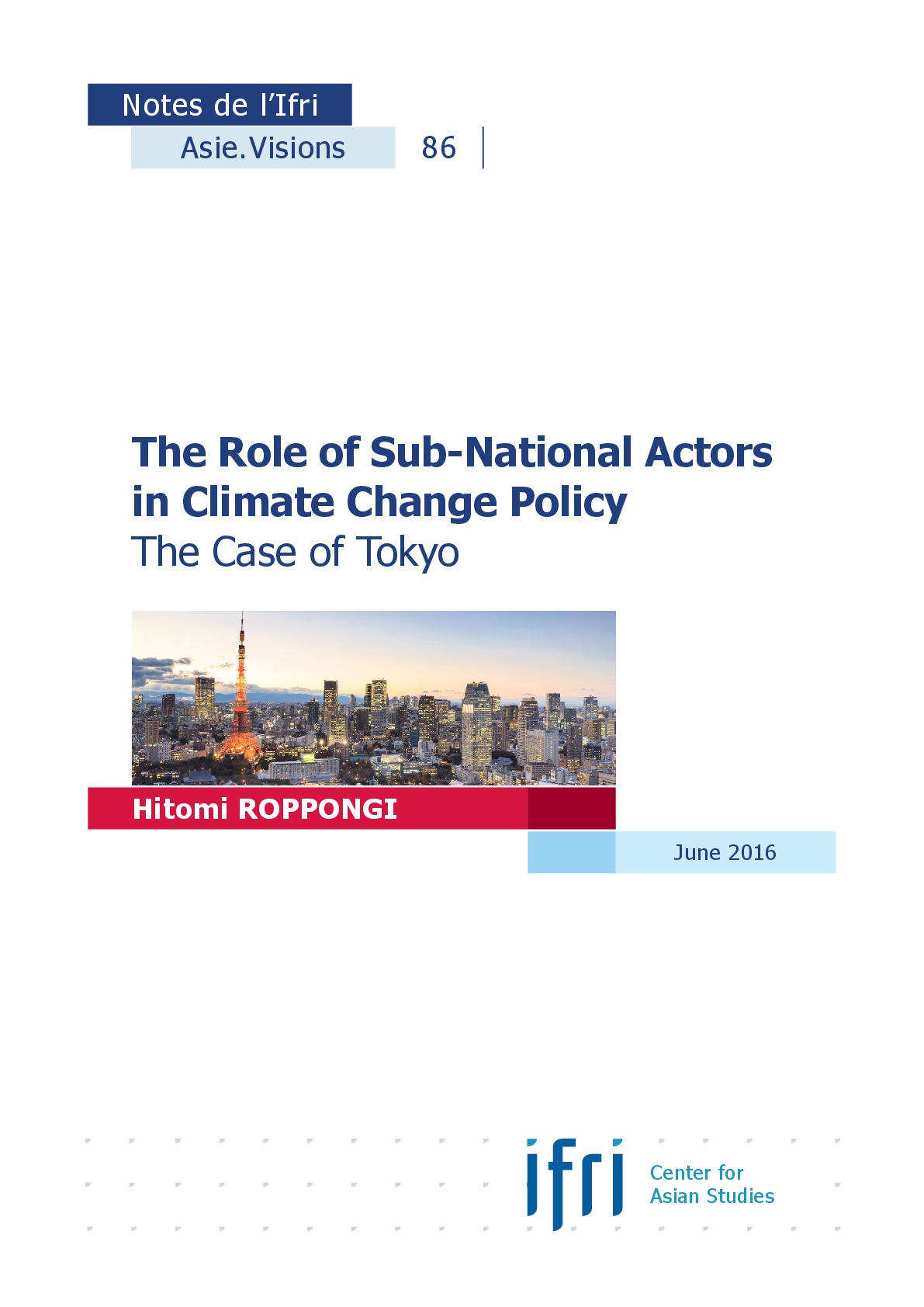The Role of Sub-National Actors in Climate Change Policy. The Case of Tokyo

Tokyo is known as a pioneer throughout the history of Japan’s environmental policy, often being compared to California in the United States or Paris in France. Following the global trend of growing local initiatives tackling climate change, Tokyo introduced a cap-and-trade scheme in 2010 ahead of a national implementation.

The Tokyo Cap-and-Trade Program is the first of its kind that regulates CO2 emissions from all business sectors, where energy consumers are defined in terms of the business establishments they own. Tokyo’s initiative is largely seen as a reaction to the modest national commitment, following the tradition of center-local rivalry.
This study first explains the centre-local relationship in the history of Japan’s environmental governance. It then analyzes the development of the Tokyo’s flagship climate policy and its implications for national and other sub-national governments in Japan. The tactics used by the Tokyo Metropolitan Government to overcome business opposition typically seen in the introduction of GHG control, and future policy challenges are also discussed. The study finds that Tokyo’s policy encourages behavioral changes and technological improvement in the business sector, going a step beyond the existing culture of energy conservation in Japan. An emission trading scheme is often associated with the collapse of carbon markets and the “money game”, rather than a practical tool to reduce CO2 emissions, but the Tokyo Cap-and-Trade Program has demonstrated a policy impact that recasts such an image. A known case of policy diffusion to Saitama prefecture, an immediate neighbor of Tokyo with the fifth largest population in Japan, is also discussed to elaborate on the potential domestic diffusion of the policy.
Download the full analysis
This page contains only a summary of our work. If you would like to have access to all the information from our research on the subject, you can download the full version in PDF format.
The Role of Sub-National Actors in Climate Change Policy. The Case of Tokyo
Related centers and programs
Discover our other research centers and programsFind out more
Discover all our analyses
China’s Strategy Toward Pacific Island countries: Countering Taiwan and Western Influence
Over the past decade, China has deployed a diplomatic strategy toward the Pacific Island Countries (PICs). This strategy pursues two main objectives: countering Taiwan's diplomatic influence in the region and countering the influence of liberal democracies in what Beijing refers to as the "Global South."

Opening up the G7 to South Korea to Address Contemporary Global Challenges
The G7’s global influence has diminished as powers like China reshape international governance through initiatives such as BRICS and the Shanghai Cooperation Organisation (SCO). With the G7 now representing just 10 per cent of the world’s population and 28 per cent of global GDP, its relevance is increasingly questioned.
Expanding SPDMM as a pivotal institution in the Pacific – A French perspective
The South Pacific Defence Ministers’ Meeting (SPDMM) is the only forum that brings together defense ministers from the wider South Pacific — including Chile, which is hosting it for the first time. This heterogeneous group of countries with varying resources, capacities, and interests — Australia, Chile, Fiji, France, New Zealand, Papua New Guinea (PNG), and Tonga — are united by their shared determination to strengthen cooperation on maritime security and humanitarian assistance and disaster relief (HADR) activities.
EU’s Derisking From China: A Daunting Task
With economic security as a major concern, the EU has recently turned to “derisking” from China. The EU strategy entails reducing critical dependencies and vulnerabilities, including in EU supply chains, and diversifying where necessary, while recognizing the importance and need to maintain open channels of communication.








